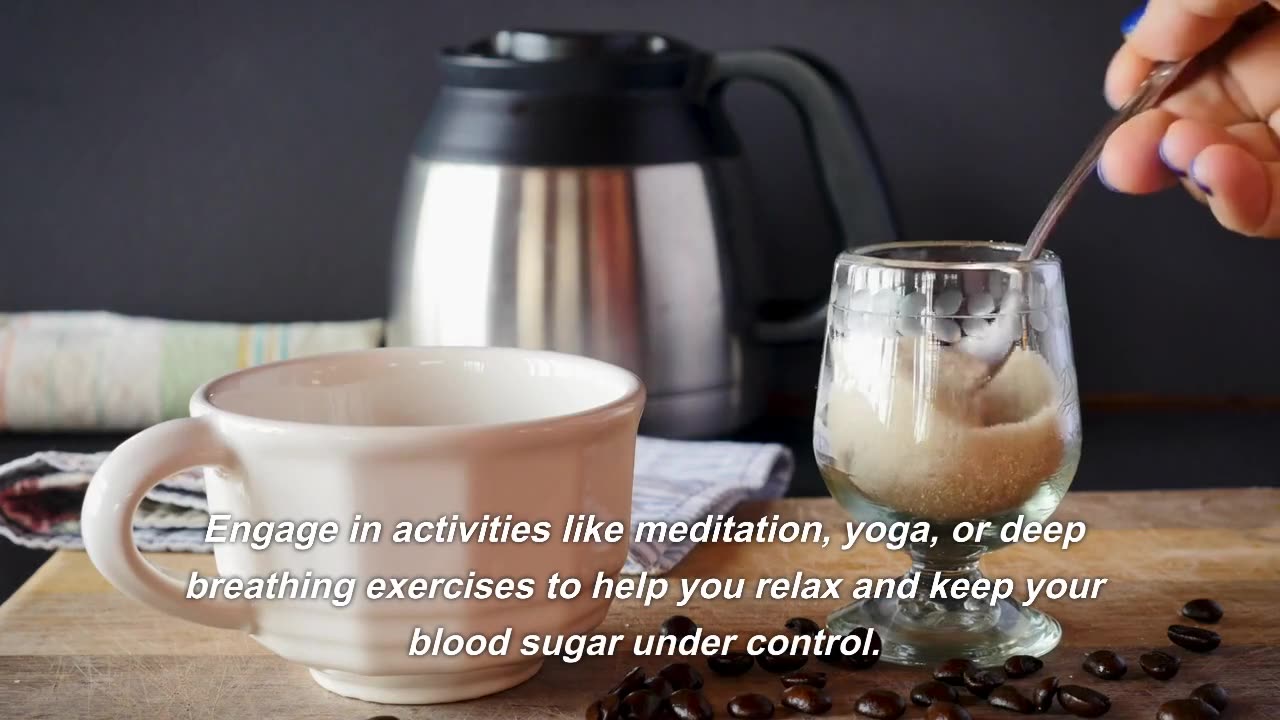Premium Only Content

5 Easy Way to Lower your Blood Sugar
Lowering blood sugar, also known as blood glucose, is an important aspect of managing diabetes and maintaining general health. Here's a comprehensive overview of strategies to lower blood sugar levels:
1. Healthy Diet
Balanced Meals: Focus on meals that include a good mix of carbohydrates, proteins, and fats. Emphasize whole grains, lean proteins, healthy fats, and a variety of vegetables.
Low Glycemic Index (GI) Foods: Foods with a low glycemic index are digested more slowly, leading to a gradual rise in blood sugar. Examples include whole grains, legumes, and non-starchy vegetables.
Limit Sugary Foods: Reduce intake of foods with added sugars, like sugary drinks, candies, and pastries.
2. Regular Exercise
Aerobic Exercise: Activities like walking, running, swimming, or cycling can help lower blood sugar by improving insulin sensitivity and promoting glucose uptake by muscles.
Resistance Training: Strength training helps build muscle mass, which can improve glucose metabolism.
Consistency: Aim for at least 150 minutes of moderate-intensity exercise per week, as recommended by health organizations.
3. Weight Management
Healthy Weight: Achieving and maintaining a healthy weight can improve insulin sensitivity and reduce blood sugar levels.
Gradual Weight Loss: If you're overweight, even a modest weight loss (5-10% of body weight) can lead to significant improvements in blood sugar control.
4. Adequate Hydration
Drink Water: Staying hydrated helps flush out excess sugar through urine and can help manage blood sugar levels.
Limit Sugary Drinks: Replace sugary sodas and fruit juices with water, sparkling water, or unsweetened beverages.
5. Manage Stress
Stress Reduction Techniques: Practices like meditation, yoga, deep breathing, or mindfulness can help reduce stress, which in turn can lower blood sugar levels.
Adequate Sleep: Aim for 7-9 hours of sleep per night. Poor sleep can affect insulin sensitivity and blood sugar levels.
6. Monitor Blood Sugar
Regular Monitoring: If you have diabetes, use a glucose meter to track your blood sugar levels. This can help you understand how different factors affect your blood sugar.
Keep a Record: Maintain a log of your blood sugar readings, diet, exercise, and other factors to identify patterns and make adjustments.
7. Medication and Insulin Management
Follow Prescriptions: If you have diabetes and are on medication or insulin, follow your healthcare provider's instructions carefully.
Consult Healthcare Providers: Work with your doctor or diabetes educator to adjust medications, if necessary, based on your blood sugar patterns.
These are general guidelines for lowering blood sugar. It's essential to tailor these strategies to your individual needs, health conditions, and medical advice from healthcare professionals. If you have diabetes or other health concerns, always consult your healthcare provider before making significant changes to your diet, exercise, or medication.
-
 LIVE
LIVE
The Amber May Show
3 hours agoFinally, The Truth Comes Out In The News About What We Have Known For A While| Sam Anthony
174 watching -
 LIVE
LIVE
TwinGatz
3 hours ago🔴LIVE - Fighting Side By Side | ARMA Reforger
373 watching -
 1:58:54
1:58:54
Revenge of the Cis
4 hours agoEpisode 1474: Space Cadets
47.6K2 -
 1:11:57
1:11:57
The HotSeat
3 hours agoResurrection Week Kicks Off—And So Does the Democrat Freak Show: AOC and Bernie 2028
37.6K2 -
 LIVE
LIVE
LFA TV
20 hours agoLFA TV - ALL DAY LIVE STREAM 4/14/25
538 watching -
 1:14:08
1:14:08
Jeff Ahern
3 hours ago $0.78 earnedMonday Madness with Jeff Ahern (1pm Pacific)
30.5K2 -
 7:24
7:24
Talk Nerdy Sports - The Ultimate Sports Betting Podcast
2 hours ago4/14/25 - Solo Strike: Vasil vs the Board (And I’m Not Missing)
18.2K -
 2:13:29
2:13:29
The Quartering
5 hours agoTrump's Huge Tariff Win, Bimbos In Space, Karmelo Anthony RELEASED, Another Trump Assassin!
159K63 -
 1:33:58
1:33:58
Right Side Broadcasting Network
7 hours agoLIVE REPLAY: President Trump Greets Ohio State National Football Champions at the White House - 4/14/25
66.1K3 -
 LIVE
LIVE
KingB33Gaming
16 hours agoZero Sum Seattle - Tommy is Still Missing | The Last Of Us PT 2 Remastered
122 watching